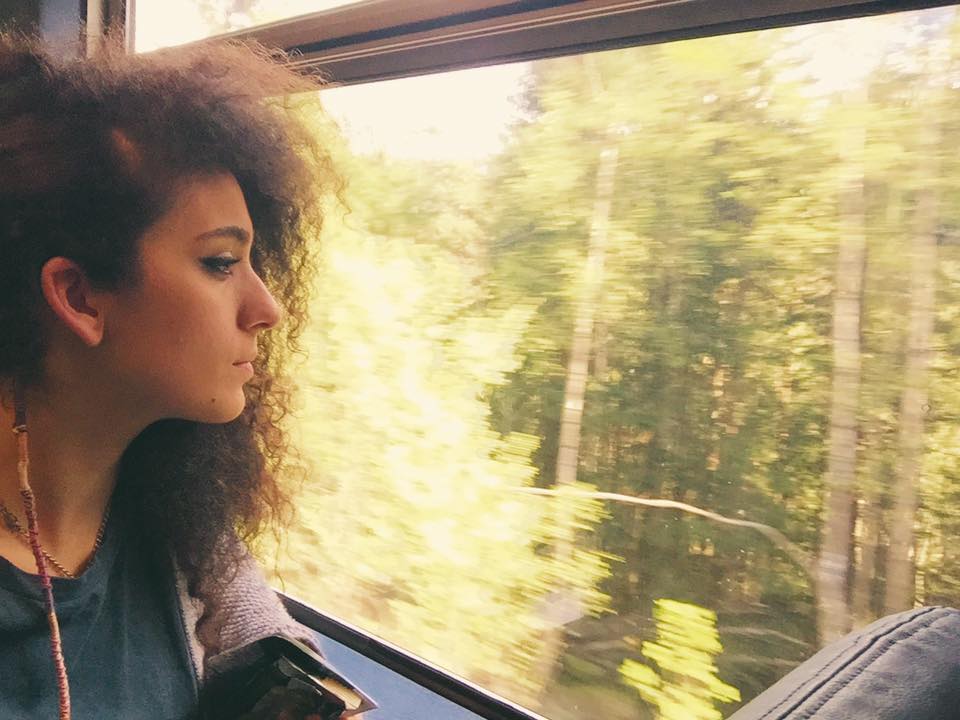
Elsa Saade: human rights defender from the Gulf Centre for Human Rights
Elsa Saade discusses her involvement with the Gulf Centre for Human Rights, emphasising the unique challenges faced by women human rights defenders in the Gulf region and the importance of international advocacy for their protection.
Elsa Saade works for the Gulf Centre for Human Rights (GCHR), an independent, non-profit and non-governmental organisation that works to provide support and protection to human rights defenders in the Gulf region by promoting freedom of expression, association and peaceful assembly.
The Gulf Centre supports and protects human rights defenders in different ways to eventually create a community of strong and safe human rights defenders protected by international mechanisms. Firstly, it can mobilise a network of prominent human rights defenders to generate support amongst each other. Secondly, it runs UN advocacy projects and provides funding and technical assistance for HRDs to attend UN meetings. Thirdly, it allocates private funding for relocation, personal finance, appeals, and assisting with the provision of safe havens in case they are in danger. Fourthly, it runs training workshops on various issues HRDs are in need of and specifically on how to engage with UN mechanisms and protection mechanisms.
Elsa, who has worked closely on the issue of women human rights defenders in the Gulf and neighbouring countries explained how women human rights defenders are at particular risk. She previously received a message from a women defender stating that she could no longer talk, that she was going underground. ‘They are threatening to kill me’, she said. ‘They will arrest me. I need to disappear.’ Elsa confirmed that she could not mention the defender’s name or where she is from as it would endanger her life, however highlighted how women not only face pressures form the government or non-state actors when she stands up for human rights, but even faces societal and cultural clashes which could even be reflected inside her home.
Elsa explained how States in the Gulf region are mostly patriarchal. The simplest example of patriarchy is the fact that women in Saudi Arabia cannot drive. Two women defenders in Saudi Arabia, Maysaa Al Amoudy and Lujain Al-Hathlol, who were caught driving as a statement to allow women to drive, were arrested and tried in the Specialized Criminal Court in Riyadh, which deals with cases of terrorism and State security. They currently await sentencing.
Elsa referred to the situation in Iran, KSA, and Syria, which she considers is especially bad. ‘If we hadn’t publicised certain cases, some of our human rights defenders would already be dead. If no-one knew their names, the government wouldn’t consider them, as if they didn’t exist. Those who exercise their right to freedom of expression face death threats, flogging and indefinite prison sentences.’
‘Some defenders fall silent but others gain confidence when bad things happen – it confirms the need to struggle for their rights. Although the conditions are depressing, it is inspiring to see how tragedies motivate women to raise their voice. Out of their misery they create something beautiful.’
At this point, Elsa further referred to cases of women Syrian refugees in Lebanon and how important their role in the house, family and society was. On that account she mentioned several challenges that humanitarian people who help Syrian refugees face. Having worked on the field she highlights that they are often at risk.
‘As a result of my work I have personally experienced challenges. I was put in a situation were I could have been beaten several times, just because I was helping the Syrian refugees.’
As a woman, and especially after having widened the scope of interest in the region’s several HRD cases, Elsa has begun to feel increasingly vulnerable.
‘The greater the exposure, the greater the risk. In Lebanon the situation is not so bad for women. But on a recent trip to Egypt I felt incredibly paranoid. I was on the constant look out. That is why so many women defenders prefer to stay on the low.’
Elsa is adamant, however, on the necessity of continuing her work to support human rights defenders.
‘Without human rights defenders, the reality would remain hidden. There is a clash between three concepts: reality, delusion and myth. You have the myth, the image that the State wants to portray; the delusion, as people keep quiet to put bread on the table; and the reality on the ground. Human rights defenders, be they journalists, bloggers, lawyers, teachers or women defenders, portray this reality. They are the ones who ask for accountability, for independent judges, for basic human rights.’
In Geneva she will meet with state delegations and UN representatives in attempt to bridge the gap between myth and reality at the international level.
‘I hope to develop a recording mechanism that records statements made by Lebanon and other states in the region in order to hold them accountable and assist to ensure that promises are met.’
‘At some points I have almost lost hope in the Lebanese youth because of all the sectarian clashes and religious attachments. But you can’t lose hope, especially when you encounter men and women who have lived tragic events and still fight for their right to basic human rights no matter the circumstances. A lot of work has to be done. I believe that change must come from within. As long as I breathe I will invest in creating a community of people who look beyond petty divisions or a passport out. There are many who desire a better future – but we must build it together.’
